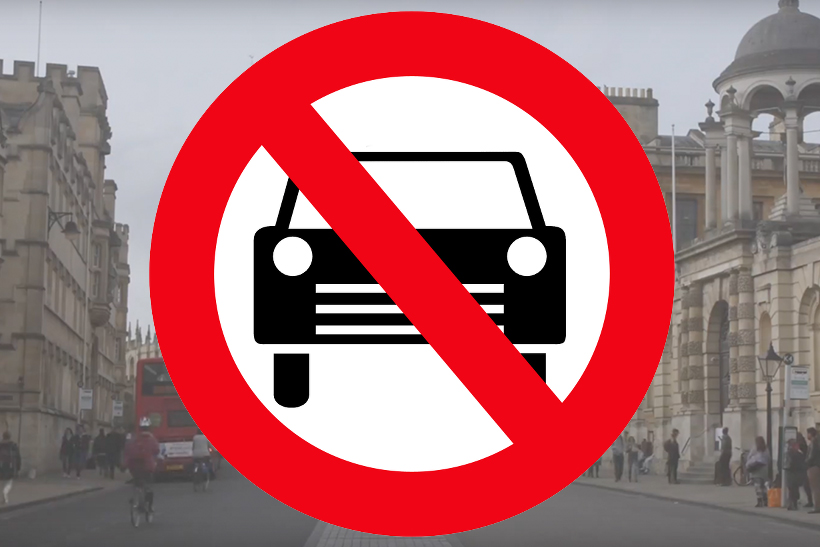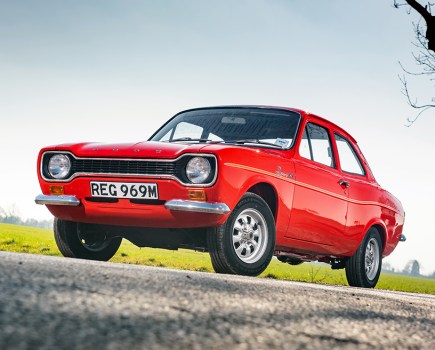A few weeks ago, Oxford City Council’s Zero Emission Zone (ZEZ) proposals made headlines.If its consultation is successful, Oxford will be the first city in the UK to ban internal combustion engine (ICE) vehicles from its centre – including older and tax exempt classics.
Oxford’s ZEZ would be rolled out in stages. By 2020, key streets would be open to electric vehicles only; by 2035, there would be a total ICE ban across the city. Petrol and diesel cars, taxis, commercial vehicles and buses, unless battery powered, would all be banned. Fully enforced, Oxford’s ZEZ would be enacted five years before the cessation of petrol and diesel car sales in the UK – and cut local nitrogen dioxide levels by up to 75 per cent.
Nationally, Oxford’s ZEZ proposals set what could be regarded as a precedent for cities – and a further test for the persuasive powers of classic lobbying bodies in securing exemptions for historic vehicles.
Oxford’s ZEZ, as currently drafted, would not allow petrol or diesel classics into the city centre; its City Council is, however, seeking feedback for its feasibility study. “We encourage any Oxford resident or commuter through Oxford to get involved in our consultation,” City Council spokesperson Tom Jennings confirmed.
He added: “We want to examine the real nuances in what people are saying and how they use the roads in the city.” Oxford’s ZEZ consultation began on Monday, October 16 and ends on Sunday, November 26.
Air quality targets are of course the reason for Oxford’s jumping the gun – like many other major cities looking to implement clean air zones, pollution is at an illegally high level. London’s Toxicity Surcharge (or T Charge) began on Monday, October 23; although tax exempt classics do not have to pay to enter the Ultra Low Emissions Zone (ULEZ), they are liable for the T Charge (at £21.50 a day).
Further afield, Paris is aiming to ban all ICE cars before the rest of France does – by 2030. Mayor Anne Hidalgo launched controls last year limiting access to the City of Light’s centre. Controlled by stickers, classic vehicles 30 years and older were granted exemptions thanks to the intervention of the Fédération Française des Véhicules d’Epoque (FFVE), the French equivalent of the Federation of British Historic Vehicle Clubs (FBHVC).
An outright ban on ICE cars before the hard French cut off of 2040 would do much to harm classic events in Paris; the Rétromobile show has been a yearly fixture since 1976. There is also the Traversée de Paris convoy to consider, held annually by historic vehicle club Vincennes en Anciennes. “Even if 2030 is nearly tomorrow, we don’t know yet if the Traversée will be over.
Maybe Anne Hidalgo won’t be mayor of Paris anymore and the next mayor will not agree with this ban. Parisians and particularly inhabitants of Ile de France do not agree with her point of view,” its spokesperson Anne Quémy rued.
She added: “The reason why the ban isn’t popular is precisely because the public transport is poor and expensive. Particularly when you don’t live in Paris but in the Paris suburb.
At the moment, the traversée is perceived as a car heritage event. We hope that it’ll be the same in the future.”
The FFVE’s Alain Guillaume was more optimistic, fully expecting classic car exemptions to be upheld, “We are confident to keep the exemption for historic vehicles after 2030”, he stated, “providing that the number of diesel cars [built between 1984 and 1992] with ‘Carte Grise de Collection’ [stickers] will not increase dramatically in the coming years.”
Alain also confirmed that visiting classics would be able to access Paris without penalty: “A foreign vehicle, provided it was classed as ‘historic’ with documents to match (a V5C for instance) will be able [for the time being] to drive through Paris.”
As more and more petrol and diesel car bans are fast tracked, the workload necessary to keep historic vehicles in cities increases. We will be gauging the FBHVC’s response to this matter in very soon right here!






